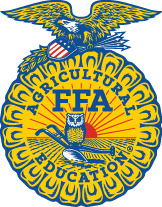Agriculture and Natural Resources
Agricultural Mechanics
Enjoy working with your hands and using equipment? This pathway blends agriculture, building trades, and manufacturing knowledge and skills providing a foundation for a wide-variety of careers. Hands-on activities allow students to gain knowledge of engineering, hydraulics, pneumatics, electronics, power, structures and controls. You’ll construct basic structures and objects using tools, machinery, and equipment.
Explore Occupations
Begin Your Journey
Agricultural Mechanics I
Develop knowledge and technical skills in the broad field of machinery, equipment, and structures. Learn how to handle, repair, and maintain tools, equipment, and machinery. Topics include mechanic safety, agricultural engineering career opportunities, hand/power tool use and selection, electrical wiring, fencing, paints and preservatives, basic metal working, basic construction skills related to plumbing, carpentry, and basic welding.
Agricultural Mechanics II
Work with metal and non-metal fabrication techniques and how to use tools and equipment safely. Practice hot/cold metal working skills and technology, advanced welding and metal cutting skills, and working with plastics, plumbing, concrete and masonry, and power systems.
Get Certified

OSHA 10-Hour General Industry (Agriculture) Certification
From OSHA basics to agriculture industry-specific workplace hazards such as confined spaces and tractor safety, this course provides foundational knowledge of occupational safety and health standards appropriate for careers in the agriculture industry.

Certified Welders per Welding Code AWS D1.1
This endorsement covers five subject areas in AWS D1.1, material and design, fabrication, inspection, qualification, and reports and records.
Expand Your Journey
Found your passion? These courses relate to this career pathway and may align to your career and college goals. Find out which of these may be available at your school and consider adding them to your Course Plan in Xello.
Browse enhancement courses:
- Agriscience Applications
- Agricultural Mechanics II Small Engines
- Automotive Service Fundamentals
- Construction Core
Earn College Credit
Get a head start on your college education by taking advantage of dual credit opportunities. There are CTE courses that can articulate to the community college, meaning they will award college credit. Also, the Career & College Promise (CCP) program allows eligible high school students to enroll in community college classes.
Articulated Credits
- WLD-112 Basic Welding Processes
Agriculture and Natural Resources
Careers focused on the production, processing, marketing, distribution, financing, and development of agricultural commodities and resources including food, fiber, wood products, natural resources, horticulture, and other plant and animal products or resources.
